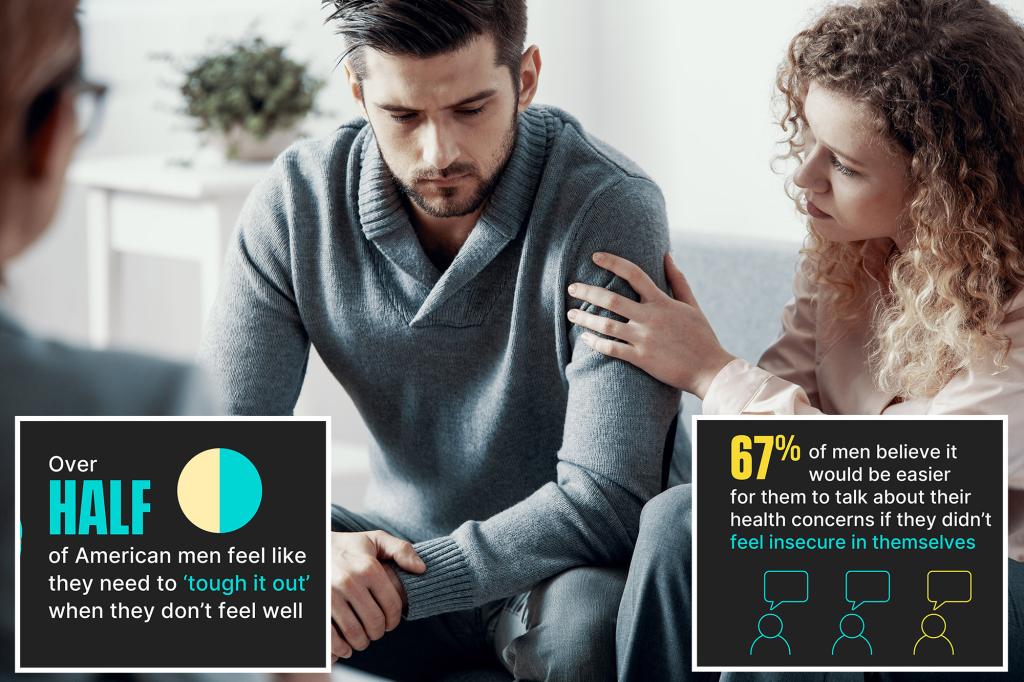A recent survey has revealed that over half of American men feel the need to “cope” when they’re not feeling well.
The survey of 2,000 American men found that many feel uncomfortable discussing their current health due to privacy concerns (61%), embarrassment (39%) or fear of feeling less “manly” (17% ).
Four in 10 said they are even afraid to talk about potential health concerns they are not currently experiencing.
SWNS / Rugiet Health
SWNS / Rugiet Health
And more than six in 10 said they will feel either insecure (63%) or lonely (61%) at least occasionally.
Ahead of Men’s Health Week, research conducted by Talker Research on behalf of Rugiet Health also found that men are less comfortable discussing erectile dysfunction (ED) (38%), obesity (10%) and depression (10%) .
Men who said they currently or have previously experienced ED saw a decrease in sexual interest (62%), decreased self-confidence (61%) and increased rates of depression (40%).
“Men’s health should not be a silent battle. Taking responsibility for your own well-being, including addressing ED, is a sign of strength, not weakness. You deserve to feel safe and fulfilled in all aspects of your life,” says Mike Apostal, CEO of Rugiet Health.
Sixty-eight percent of men with erectile dysfunction said they believe it is an often stigmatized condition that can have far-reaching effects on a man’s overall well-being.
SWNS / Rugiet Health
SWNS / Rugiet Health
Men surveyed said it not only affects sexual health, but also has the potential to affect self-confidence (58%), personal and romantic relationships (53%) and mental health (49%).
Men with ED believe their self-confidence (75%), emotional health (64%) and mental health (54%) would improve if they did not have the condition.
Apostal emphasized, “ED is not just about sex. It can be a red flag for serious health issues like heart disease or diabetes. By breaking the stigma and encouraging men to get help, we’re helping guys take charge of their health and get back in the game.
SWNS / Rugiet Health
“During Men’s Health Week, it’s essential to raise awareness of the silent struggles men face and encourage them to seek help when needed. Addressing ED and its potential impact on various aspects of men’s lives is an important step in promoting overall health and wellness.”
Survey methodology:
This random double-choice survey of 2,000 American men was commissioned by Rugiet Health between May 15 and 20, 2024. It was conducted by market research company Talker Research, whose team members are members of the Market Research Society (MRS) and the European Society for Opinion and Marketing Research (ESOMAR).
#men #afraid #talk #health
Image Source : nypost.com
